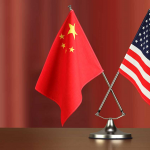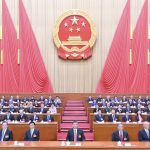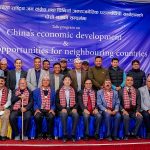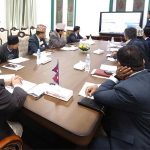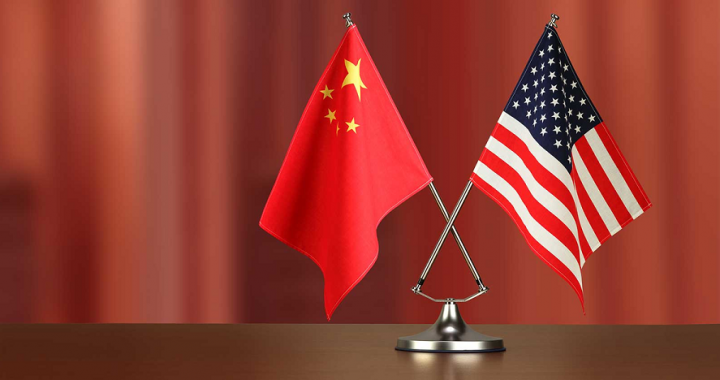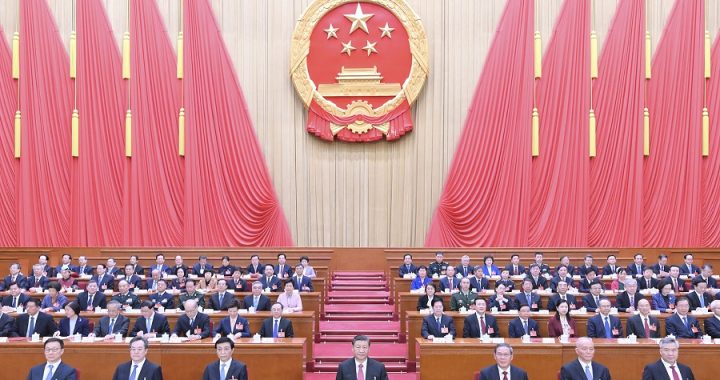DPRK mulls over increasing ‘nuclear war deterrence’: KCNA
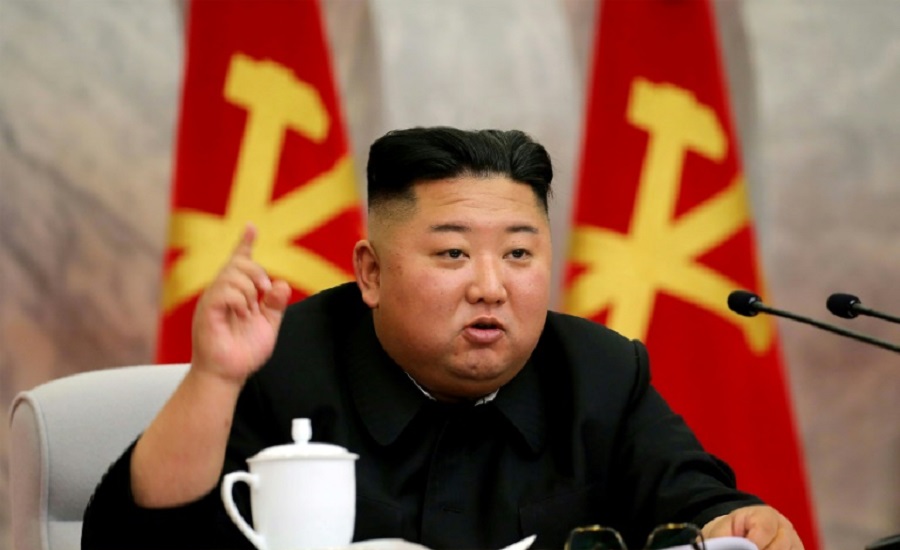
Kathmandu| 2020-05-24 (CGTN)
The Democratic People’s Republic of Korea (DPRK) discussed new policies for increasing its “nuclear war deterrence” during a military meeting presided over by leader Kim Jong Un, state media Korean Central News Agency (KCNA) reported on Sunday.
The meeting was Kim’s first reported public appearance in more than three weeks and came after the administration of U.S. President Donald Trump reportedly discussed holding the first U.S. nuclear test in decades.
Ruling Workers’ Party officials wore face masks to greet Kim as he entered the meeting of the party’s powerful Central Military Commission, state television showed, but no one including Kim was seen wearing a mask during the meeting.
The country has insisted that it has not seen a single case of coronavirus, although experts doubt it.
Set forth at the meeting of the Central Military Commission were “new policies for further increasing the nuclear war deterrence of the country,” KCNA said, without giving further details.
“Crucial measures” were taken “for considerably increasing the firepower strike ability of the artillery pieces of the Korean People’s Army,” it added.
Discussions also centered on “putting the strategic armed forces on a high alert operation” in line with the “building and development of the armed forces of the country.” The meeting also reviewed and analyzed “a series of drawbacks in the military and political activities” and discussed ways for “drastic improvement,” according to KCNA.
The date of the meeting was not given, but a separate KCNA dispatch from the same meeting reported a military order signed by Kim was issued on May 23.
That marked Kim’s first reported public appearance in more than 20 days, after he reappeared following an earlier three-week absence which triggered intense speculation about his health.
News of the nuclear discussions came after a report in The Washington Post said Friday that the Trump administration had discussed holding the first U.S. nuclear test since 1992 as a potential warning to Russia and China.
Daryl Kimball, executive director of the U.S.-based Arms Control Association, told the paper that such a decision would likely “disrupt” negotiations with Kim, “who may no longer feel compelled to honor his moratorium on nuclear testing.”
Negotiations between Pyongyang and Washington over denuclearization remain at a standstill despite three high-profile meetings between Kim and Trump.
Pyongyang has carried out a series of weapons tests in recent months – often describing them as multiple launch rocket systems, although Japan and the U.S. have called them ballistic missiles.




